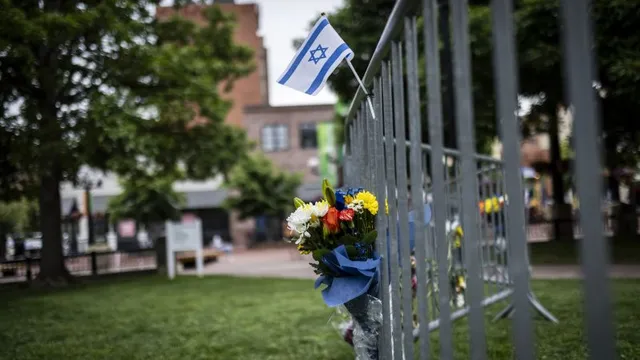
Mohamed Soliman attacks pro-Israel marchers in Boulder using Molotov cocktails
2025-06-06 00:00- A suspect used Molotov cocktails to attack pro-Israel demonstrators during a public event in Boulder, Colorado.
- Eight victims were hospitalized, including a Holocaust survivor, highlighting the severity of the attack.
- The incident reflects a disturbing trend in rising antisemitic violence within the United States.
Express your sentiment!
Insights
Recently in Boulder, Colorado, an attack classified as a terrorist act occurred during a pro-Israel demonstration known as the 'Run for Their Lives' event, aimed at raising awareness for hostages held by Hamas. The suspect, 45-year-old Mohamed Sabry Soliman, allegedly threw Molotov cocktails at a crowd of demonstrators, resulting in serious injuries to eight individuals, including a Holocaust survivor. The victims, aged between 52 and 88, experienced burns and were hospitalized, with one reported in critical condition. The FBI's investigation into the incident indicated that the suspect had premeditated the attack for almost a year. The police reported that Soliman shouted 'Free Palestine' during the assault, reflecting his ideological motivations. Following his arrest, he revealed to authorities his intent to kill individuals he identified as 'Zionists' and expressed that he would carry out similar actions again. His arrest led to charges of attempted murder and a federal hate crime charge. The situation arose amid a broader increase in antisemitic incidents across the United States, which the Anti-Defamation League had recorded at an all-time high in recent years. In the aftermath of this distressing event, community leaders and government officials expressed their outrage and concern for victims and the wider Jewish community. Statements from local authorities and attorney general Phil Weiser emphasized the importance of standing united against hate and violence directed at any group. The attack not only injured individuals but also struck a chord within the community about the rising tide of antisemitism, especially in light of the ongoing conflict in the Middle East, which has seen a surge in pro-Palestinian demonstrations coupled with violent antisemitic incidents. As investigations continue, community members are rallying to support the victims and address the needs created by such acts of violence. Initiatives to promote unity and compassion across different communities are seen as vital steps forward in healing and preventing future occurrences of hate-fueled attacks. The ramifications of this attack will likely extend beyond immediate physical injuries, as the psychological impact on survivors, particularly the elderly Holocaust survivor, resonates deeply amid recurrent narratives of violence against Jews in America.
Contexts
Federal hate crime laws in the U.S. are crucial components of the country’s legal framework aimed at protecting individuals and groups from violence and discrimination based on their identity. These laws cover acts motivated by bias against race, color, religion, national origin, sexual orientation, gender identity, and disability. The first federal law addressing hate crimes was the Hate Crime Statistics Act of 1990, which mandated the collection of data on hate crimes by the FBI. This was subsequently expanded by the Violent Crime Control and Law Enforcement Act of 1994, which authorized federal prosecution of hate crimes, allowing for federal intervention in cases where local jurisdictions fail to effectively prosecute hate-based violence. In 2009, the Matthew Shepard and James Byrd, Jr. Hate Crimes Prevention Act further broadened the scope of federal hate crime legislation by including offenses motivated by sexual orientation and gender identity, as well as those committed against individuals with disabilities. Enforcement of federal hate crime laws typically requires a strong evidential basis to prove that the crime was motivated by bias. The Federal Bureau of Investigation (FBI) plays a key role in investigating reported incidents and gathering statistics that are critical for understanding the prevalence and nature of hate crimes across the nation. The statistics collected help inform policymakers, advocacy groups, and the public regarding the challenges faced by marginalized communities. While these laws provide a federal framework for addressing hate crimes, the actual prosecution of cases often involves coordination between federal, state, and local law enforcement agencies to establish the necessary evidence and jurisdiction. Moreover, the effectiveness of hate crime laws faces scrutiny regarding their enforcement, the adequacy of penalties, and their impact on reducing the occurrence of such crimes. Prominent cases and ongoing advocacy highlight the importance of continued attention to the issue of hate crimes within federal policy. Activists emphasize the need for further reforms to address loopholes, strengthen penalties, and ensure comprehensive protections for all individuals targeted due to their identity. Despite legal advancements, challenges remain, as victims often face barriers such as underreporting due to fear of law enforcement, mistrust in the justice system, or lack of awareness regarding the existence of hate crime laws. Therefore, educational initiatives that inform communities about their rights and available legal protections are essential in fostering an environment that encourages reporting and deters hate-based violence. Ultimately, federal hate crime laws serve as vital instruments for combating discrimination and violence, aiming to promote a society where individuals can live without fear of persecution based on inherent characteristics. Ongoing analysis of hate crime data, trends, and enforcement strategies is necessary to ensure that these laws adapt to the evolving social landscape, addressing new forms of hate and bigotry as they emerge. The commitment to confronting hate crimes and promoting justice remains a collaborative effort among lawmakers, law enforcement, advocacy groups, and communities, highlighting the need for an ongoing dialogue on how best to protect and empower all individuals against hate-fueled violence.